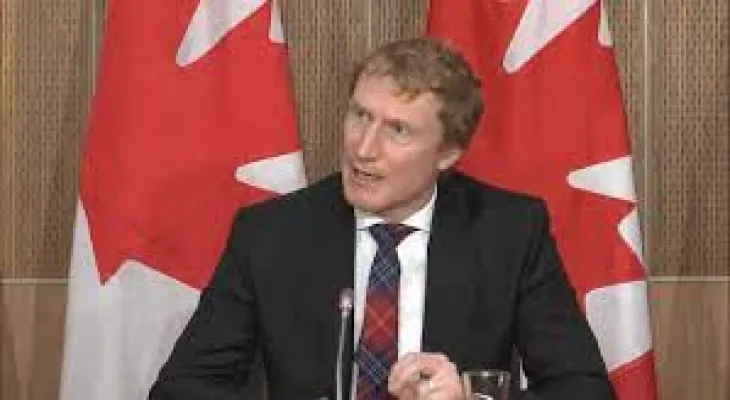Search here
Newspaper
Search here

Arab Canada News
News

Published: January 15, 2024
Immigration Minister Mark Miller said he will be reviewing the number of international students and other non-permanent residents coming to Canada, as political tension rises around the interaction between housing affordability and immigration.
In an interview with Rosemary Barton Live, broadcast today Sunday, Miller said the relationship between housing and immigration is complex and was discussed around the Cabinet table when it comes to setting targets for the number of people coming to Canada.
Miller told CBC's chief political reporter, Rosemary Barton, that “Housing has been and continues to be a concern, sharply now in a post-COVID scenario, with rising interest rates, supply challenges, but also affordability challenges.”
He added, "Immigrants are not the ones who raised interest rates, but the volume is the volume and that is something we need to consider.”
Canada faces significant challenges regarding housing affordability, and the Conservative opposition has sought to blame the Liberal government by linking government deficit to rising interest rates.
Conservative leader Pierre Poilievre said during an event in Thunder Bay, Ontario, on Friday: "My logical plan is to cut waste and limit spending to balance the budget so that we have more affordable interest rates.”
“And secondly, to link the number of dollars cities get for infrastructure to the number of homes they allow to be built.”
Polling indicates a shift in Canadians' thinking about immigration in relation to housing, with a strong majority saying that gathering larger numbers of people worsens the housing affordability crisis and increases pressure on the healthcare system.
The Liberal government responded with a series of measures designed to increase housing affordability — including a series of deals with municipalities to encourage more changes in zoning and housing-friendly regulations — in exchange for federal dollars, and Miller introduced new regulations on foreign students in December.
A report by the Canadian Press this week revealed that senior civil service officials warned the government that increased immigration would impact housing affordability and availability, as well as services such as healthcare.
In November, the government announced that after several recent increases in its annual immigration targets, it will hold steady at a target of 500,000 new permanent residents in 2026, and Miller also said his work in the coming months will focus on temporary residents.
Adding, “I think the challenge facing non-permanent resident targets is that there are none,” noting that restricting temporary workers could have serious economic effects.
“We have to take a look at that and rein it in in many areas, but we have to be clear about what exactly that means.”
He floated the idea of either reforming work permits for graduate students or “real control over the size” of non-permanent residents.
In a separate interview with The House on CBC, which aired on Saturday, Miller defended the government’s broad approach to immigration, arguing it is necessary to ensure a sustainable and growing workforce in Canada as the population ages.
Miller also pointed out that issues such as the number of post-secondary students coming to Canada on temporary visas are shared with the provinces responsible for regulating colleges and universities.
Jovial Orlatchi Osondu, president of the International Student Association at the University of Moncton, said in a separate interview with Rosemary Barton Live that it is "largely unfair to blame international students" for the housing crisis, and that affordability has already had an impact on people looking to move to Canada.
Osondu continued, “I think this will discourage people who are waiting to come here to study.”
Miller said the federal government is looking to intervene in a market where some actors trade on long-term pain in the housing market for short-term financial gains.
Miller added, “I don’t want to be rude about this, but the federal government is the only player here that isn’t making money from this.” He said some provinces need to be ready to make changes, and he looks forward to working with them.”
“We need to point out to them that the bar is closed and that we need to know that. This is a shared jurisdiction — and the federal government is ready to do something if they don’t.”
Comments